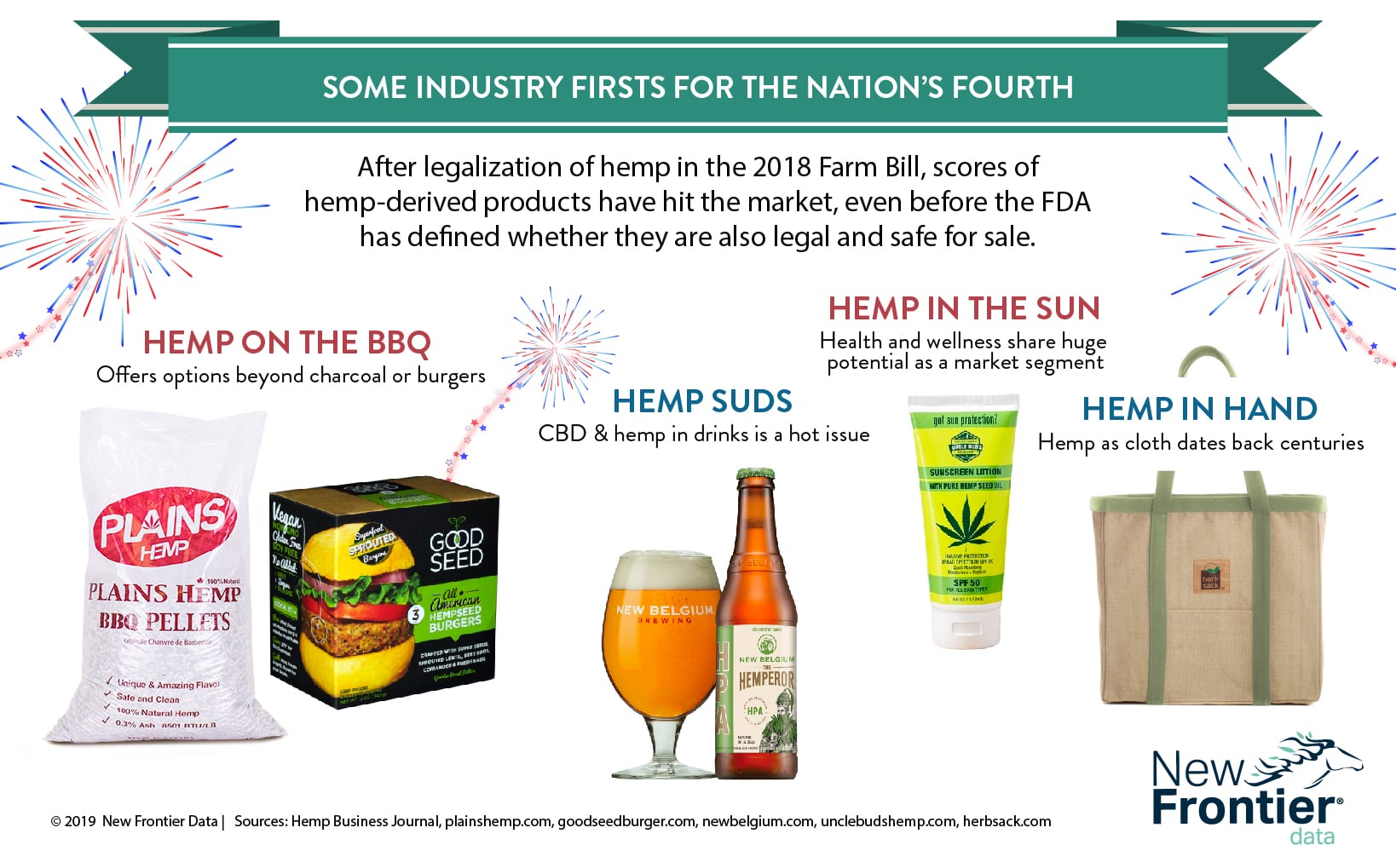As Summer Heats Up, So Too Does Market Buzz About Hemp and CBD Products


By William Sumner, Hemp Business Journal Contributor, and J.J. McCoy, Senior Managing Editor, New Frontier Data
The Fourth of July is traditionally a time of celebration without partisanship, a national holiday marked by firing up the grill, watching fireworks, and commemorating the founding of the United States. Less familiar are the ways by which hemp was historically utilized in American life, liberty, and the pursuit of happiness.
In the original 13 colonies under the British Empire, hemp cultivation was not only widespread, but indeed commonly required by law for every farmer to grow for the community’s benefit, dating at least to 1619 in Virginia. More than a century later, deeming it a more profitable crop than tobacco, George Washington grew hemp at his Mount Vernon estate.
In the 20th century, after a 1937 de facto federal prohibition of the plant, the United States government briefly lifted the ban during World War II as hemp fiber was recognized as vital to the war effort, even promoting it in the 1942 government film, “Hemp for Victory ”.
Fast-forward 77 years, hemp is once again being cheered as a multifaceted tool for prosperity, as enabled by passage of the 2018 Farm Bill, and with heightened awareness of the crop’s versatility throughout more than an estimated 25,000 product applications.
To use the holiday as an example, the Hemp Business Journal notes some (but does not endorse any) examples you may see this Fourth of July:
Hemp-Enhanced Grilling
With the exceptions of baseball and apple pie, few things are as emblematically American as eating hot dogs and hamburgers on the Fourth of July. Anyone seeking a hemp-related offering may look for a Kentucky Hemp Dawg or a Good Seed Hemp Seed Burger grilled up over some hemp barbecue pellets.
Hemp-Infused Libations
Anything in a bun washes down well with a cold drink. As this study detailed among New Frontier Data’s Cannabis Consumer Insight Series, Big Alcohol is well aware of the potential market disruption from hemp and cannabis. Unfortunately – since hemp has historically been legally lumped in with marijuana, the resultant dearth in scientific research about safe dosages, drug interactions, and whatever long-term effects of use might entail – the FDA is only now getting down to the business of establishing a regulatory framework. The federal agency is accepting public comments through July 16 while it aims to educate and protect the public about unsafe products and false or misleading claims.
Sunscreen and Moisturizers
Of course, cooking out requires being outdoors, which begs the need for skin protection, such as sunscreen or any among an increasingly expanding array of lotions and topicals in an explosively expansive personal-health-and-wellness segment of an overall U.S. market for hemp-derived CBD products estimated to reach $1.3 billion in sales by 2022.
In The Global State of Hemp: 2019 Industry Outlook, New Frontier Data elaborated on the potential for retail and channel sales across CBD, supplements, consumer products, and industrial products, including wholesale and market pricing for biomass, flower and CBD wholesale products including historic and recent prices per kilogram for CBD isolate, full spectrum oil (FSO) and THC-free distillate.
Pending the FDA guidelines, however, controversy surrounds those, too: Last month, the online Thrive Market featuring natural and organic products was forced to shelve its catalog of hemp extracts and topicals at the demand of the company processing its customer payments. Likewise, CNN reported that third-party payment processor Stripe dropped the US Hemp Authority, a nonprofit organization developing a certification program and label for hemp, due to liability concerns.
This week, members of the U.S. Armed Forces were reminded that military personnel “should not confuse the prevalence of such products with their legality,” and that soldiers and government civilians remain prohibited from using hemp products of any sort, regardless of whether such have been legalized in certain jurisdictions.
Be it this Fourth or going forth till the FDA offers more clarity, it is caveat (hemp-derived CBD) emptor.
Editor’s Note: On behalf of the staff of The Hemp Business Journal and New Frontier Data, enjoy a safe and happy Independence Day.
William Sumner
William Sumner is a writer for the hemp and cannabis industry. Hailing from Panama City, Florida, William covers various topics such as hemp legislation, investment, and business. William’s writing has appeared in publications such as Green Market Report, Civilized, and MJINews. You can follow William on Twitter: @W_Sumner.



